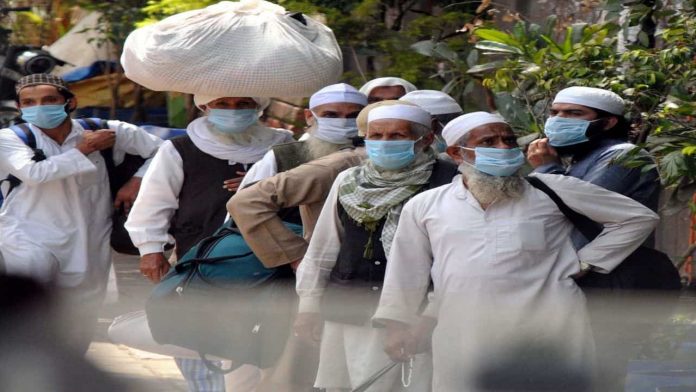New Delhi (ILNS): The Supreme Court today asked the district courts to expedite hearing in the pending cases against foreign nationals in the Maulana Hadrami Vs Union of India case pertaining to the Tablighi Jamaat issue. A bench of Justices A. M. Khanwilkar, Dinesh Maheshwari and Sanjiv Khanna was hearing the matter.
Senior Counsel Menaka Guruswamy submitted that applications of the eight petitioners discharged are still pending before the Additional Sessions Judge and hence should be decided.
The petitioners told the court that even though 36 of the foreign nationals were discharged under Foreigners Act, 1946 by various Sessions courts in Maharashtra and other states, revision petitions have been filed by the police.
“It has become a punishment for them, even after discharge the revision applications are filed, and matters will now be heard on November 7 and 10. They are not being allowed to go back to their countries,” said advocate CU Singh.
To this the Supreme Court said: “We hope that the matters will be decided speedily. Will see the progress on the next hearing in on November 20.”
The Court was hearing a petition filed by foreign nationals from 35 countries, presently in India challenging the MHAs order arbitrarily directing the Directors General of Police and Police Commissioners of all States/UTs, to register FIRs against them, as reflected in the press release of April 2.
The bench on the previous occasion, while disposing of the petition had directed:
“The prosecution in the present set of cases (State of Uttar Pradesh) shall forthwith move a formal application before the Principal Seat of the Allahabad High Court for appropriate relief(s), which we are certain would be considered in light of and in terms of order dated 06.08.2020 in reference to similar cases in the N.C.T. of Delhi. The application to be moved by 5 the State of Uttar Pradesh may be dealt with preferably by the senior most Judge of the Allahabad High Court, taking up the criminal assignment, expeditiously. After the application is moved by the State of Uttar Pradesh and is disposed of by the High Court, the trial Court(s) shall endeavor to dispose of the concerned criminal cases within eight weeks from the date the same are transferred to such Court(s). We place on record that the parties have assured this Court that complete cooperation will be extended to the trial Court(s) for expeditious disposal of pending criminal cases including to participate in the proceedings through video conferencing.”


